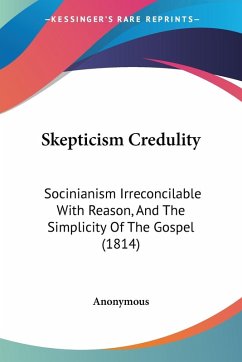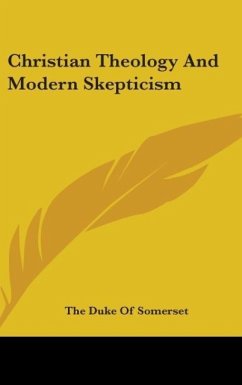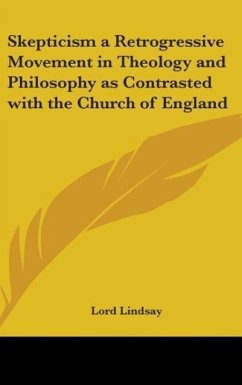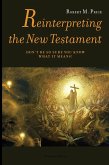""Skepticism Credulity: Socinianism Irreconcilable With Reason, And The Simplicity Of The Gospel"" is a book written by an anonymous author in 1814. The book is a critique of Socinianism, a religious movement that rejected the doctrine of the Trinity and the divinity of Jesus Christ. The author argues that Socinianism is incompatible with reason and the teachings of the Gospel. The book is a defense of orthodox Christianity and a warning against the dangers of skepticism and credulity. The author argues that the simplicity of the Gospel is the key to true faith and that Socinianism is a misguided attempt to rationalize Christianity. The book is a valuable resource for anyone interested in the history of Christianity and the debates that have shaped the faith over the centuries.This scarce antiquarian book is a facsimile reprint of the old original and may contain some imperfections such as library marks and notations. Because we believe this work is culturally important, we have made it available as part of our commitment for protecting, preserving, and promoting the world's literature in affordable, high quality, modern editions, that are true to their original work.
Bitte wählen Sie Ihr Anliegen aus.
Rechnungen
Retourenschein anfordern
Bestellstatus
Storno








